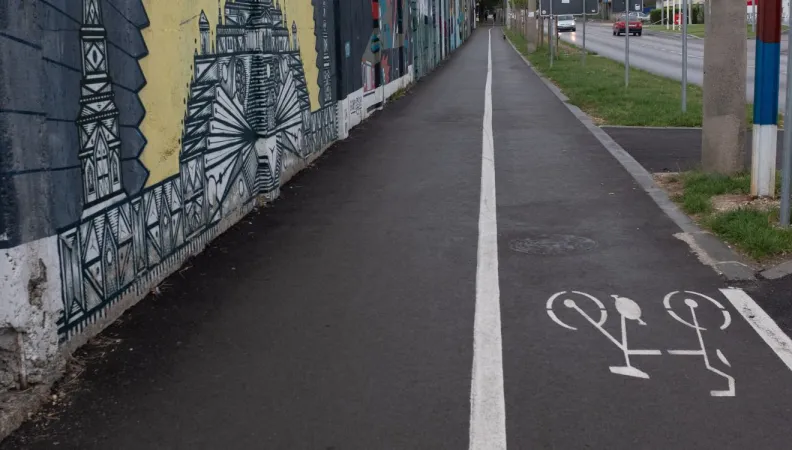Share the page
LIID - Local Infrastructure and Institutional Development Project in Serbia
Project


-
Project start date
-
Status
Ongoing
-
Project duration
-
6 years
-
AFD financing amount
-
€ 176 800 000
-
Country and region
-
Location
-
Serbia
-
Type of financing
-
Beneficiaries
-
Republic of Serbia
The LIID project, co-financed with the World Bank, promotes sustainable urban development investments in Serbia and aims to strengthen the investment capacity of local governments.
Context
The Local Self Governments (LSGs) in Serbia are responsible for the development and management of mobility infrastructure. Many of them are in poor condition due to insufficient investment and maintenance. This results in the deterioration of the mobility offer, unequal access to services and increased pollution. Increasing territorial and gender inequalities, road safety, depopulation of some territories and increased vulnerability to climate risks are the main challenges targeted by this project.
In line with the European Union (EU) integration process undertaken by Serbia, which includes objectives and standards for the decarbonization of the sector and the improvement of the quality of life in cities, the LSGs aim to promote a better sharing of public space between transport modes and the renewal of critical local infrastructures.
Description
The aim of the project is to improve the capacity of all 145 Serbian LSGs to develop and manage green, inclusive and resilient sustainable mobility infrastructures. The project will strengthen, on top of additional investment funds, the technical skills of the LSGs in terms of planning capabilities, operational performance and financial sustainability of their investments.
The project, co-financed with the World Bank (WB), includes the following three components:
- Climate Smart Mobility (€249,28 million): support for the financing of investments promoting sustainable mobility and resilience of infrastructure to climate change, and a technical assistance sub-component to develop sustainable urban mobility plans.
- Strengthening Systems and Capacity for Infrastructure Service Delivery (€10,17 million): mix of technical assistance services and development of specific tools to strengthen LSGs, provide robust planning frameworks, promote asset management of infrastructure, improve the integration of climate issues and access to external financing with a specific effort towards the weakest LSGs.
- Project Implementation Support and Awareness Raising (€5,75 million): financing of the Project Management Unit (PMU) within the Ministry of Construction, Transport and Infrastructure (MCTI).
Impacts
The first objective of the project is to improve the quality of life of the 7 million residents of Serbia, specifically targeting the poorest local communities vulnerable to climate change. The project will contribute to the reduction of social and geographical inequalities and improve access to markets, employment and basic services. It includes specific actions to improve women’s mobility situation.
The project will also contribute to a low-carbon development path, through a rebalancing of public space shar-ing in favor of active modes (pedestrians, bicycles) and the promotion of low-carbon mobility planning. It will also contribute to the resilience of territories to climate change, by taking into account the projected evolution of climate conditions.
Moreover, the project will improve the performance and efficiency of LSGs, with better planning of investment, operation and maintenance costs. It thus aims to improve the planning, implementation and management of investments made by the Local Self Governments, following an integrated approach. The project plans to contractualize the commitments of the LSGs in terms of good governance and budget management. It will thus contribute to prepare the LSGs to effectively mobilize European financing instruments.


